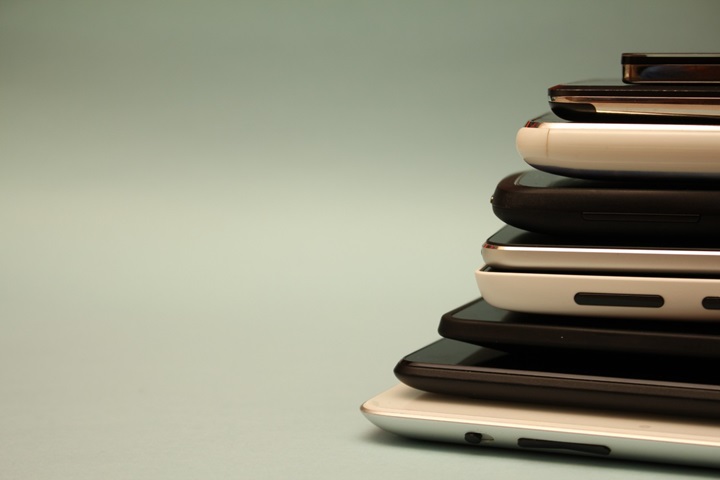Worldpanel by Kantar latest ComTech Smartphone Operating System (OS) data indicates global Smartphone sales volumes have declined -2% year-on-year, driven by a sharp downturn in Mainland China. Other insights uncovered within the Global Smartphone market in the first quarter of 2024 include:
- Smartphone sales in Europe, the US, and Australia experienced significant growth, with Android and iOS driving the surge, indicating robust demand across all markets.
- Samsung's Galaxy S24 series, featuring artificial intelligence (AI) capabilities, has resonated well with consumers, contributing to Samsung's continued dominance in the Android market.
- Apple iOS strong US performance continues. Sales +35% year-on-year. iPhone accounts for 8 of the top 10 models.
Year-on-year market growth, by region
|
Top Selling devices
|
Global Smartphone sales mixed picture
-
In Europe’s top 5 markets, France, Germany, and Great Britain all experienced double digit % growth.
- The iPhone15 remains the top selling model, accounting for 5% of all Smartphones sold.
- Samsung remains the top selling Android brand. The Galaxy S24 series accounted for 6% of all sales.
- Honor experienced strong growth in France and Spain. Xiaomi is #1 in Spain, up +4% pts share year-on-year.
-
The US is Apple’s strongest market, accounting for 1 in 2 of all Smartphones sold (+2%pts year-on-year), 8 out of the 10 top selling models are an iPhone.
- Android has had a challenging quarter in the US losing -2% share year-on-year.
- Top selling Android manufacturers Samsung and Motorola both lost share, -3% pts and -2% pts respectively, despite recently released Samsung Galaxy S24 Ultra being the top selling Android device.
-
Across the Asia Pacific region, sales volumes vary. Mainland China has experienced a steep year-on-year decline in sales volumes, dropping to its lowest level in three years.
- Android remains the top selling OS, despite its share dropping -4% pts year-on-year. Domestic brands had a mixed performance; Xiaomi experienced a -2% pts drop, while Honor grew 3% pts, propelling it to 4th spot.
- Huawei’s Harmony OS has gained +3% pts share, stealing the majority from Android. Its latest Flagship Mate 60 series accounts for the 3rd and 4th top selling models, accounting for 8% of overall sales.
- Apple iOS experienced a +1% pts increase in share, iPhone 15 & 15 Pro Max were the top 2 selling models.
-
In Japan sales have declined year-on-year Android has had a strong quarter, gaining +4% pts share.
- Google Pixel is the top selling Android Smartphone, the more affordable Pixel 7A proving the most popular.
- Apple iOS has lost -5% pts share year-on-year, the iPhone 15, 14 and SE (2022) are the #3 selling models.
-
Australia has seen a strong 38% uplift in Smartphone sales volumes.
- Android is the top selling OS, Google Pixel driving strong growth. Samsung Galaxy S24 Ultra is the top selling Android model. Apple iOS models account for 8 of the top 10 selling models.
What impact has AI had on consumer behaviour?
Samsung announced that ‘Galaxy AI is here’ alongside the launch of the Galaxy S24 Series in January. Apple is rumoured to be partnering with Google to embed Gemini AI into iPhones. We already see AI contributing to brand loyalty and improved ASPs. Across the European 5 and US, 24% of Galaxy S24 series buyers cite ‘AI’ as a key reason why they chose their phone. Amongst consumers that are driven to purchase by AI, 27% are Gen Z; hardly surprising, as current AI use cases largely align with this highly sought after demographic, from circling a desired product in a TikTok video, to condensing notes scribed in a college class.
Convincing consumers of the benefits that AI can bring will help manufacturers acquire more valuable consumers. Our research indicates that Galaxy S24 buyers who identified AI as a key reason for their choice were more likely to have owned a previous Samsung device vs those that were not influenced by AI, (93% vs 87%). As Smartphone sales growth remains restricted, installed base retention is more important than ever. AI is also driving higher ASPs, with 70% of AI-interested consumers spending €800+ on their device, vs 55% of those for whom AI was not relevant.
Jack Hamlin, Global Consumer Insights Director, at Kantar’s Worldpanel ComTech, says: “Following a sustained period of stalled hardware innovation, AI will be the next differentiator for Smartphone manufacturers. The technology presents two distinct growth opportunities. Firstly, driving greater volume and value of Smartphone sales. Secondly, through monetising the installed base via subscriptions to access unique capabilities. Apple’s services revenue increased 11% year-over-year. In its Q1-24 results, highlight the opportunity that services revenue represents.
Worldpanel by Kantar will continue to track the impact of AI on consumer behaviour across its global longitudinal panels, providing insights into successful AI product innovations, AI motivated consumers, and original equipment manufacturers winners and losers.
Reach out to our experts to learn more and access the interactive data visualisation tool for a detailed look on the market shares.


